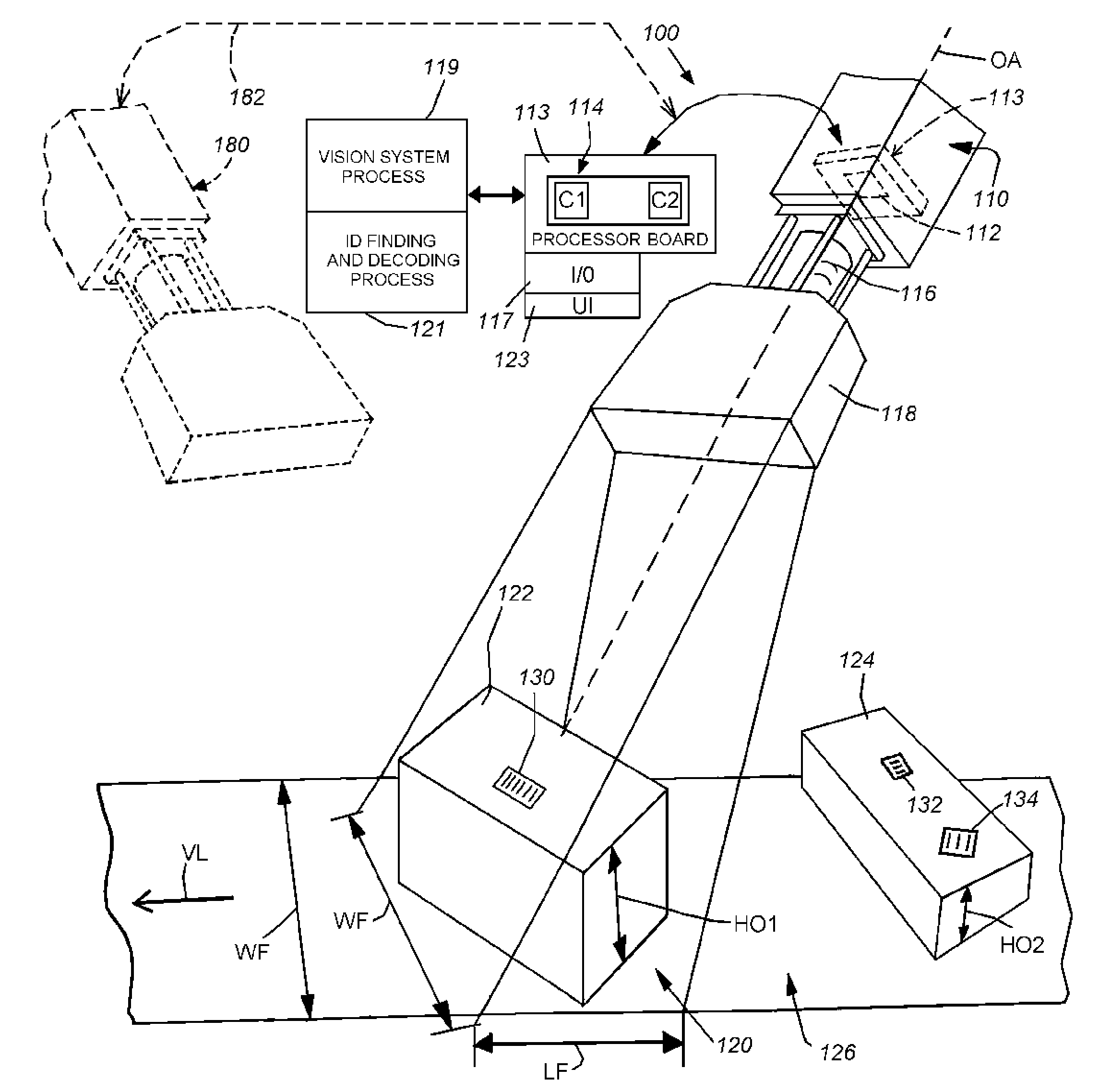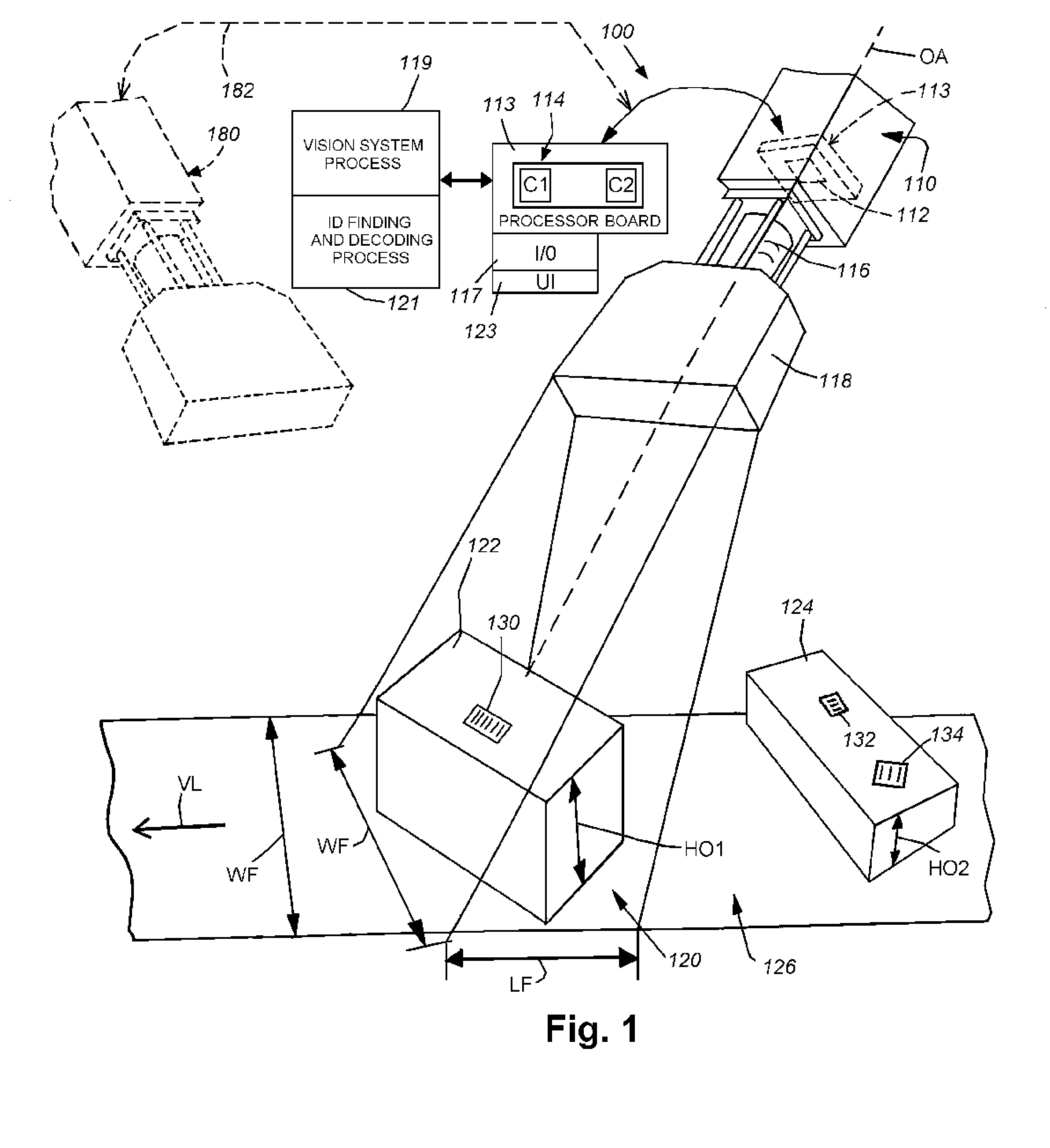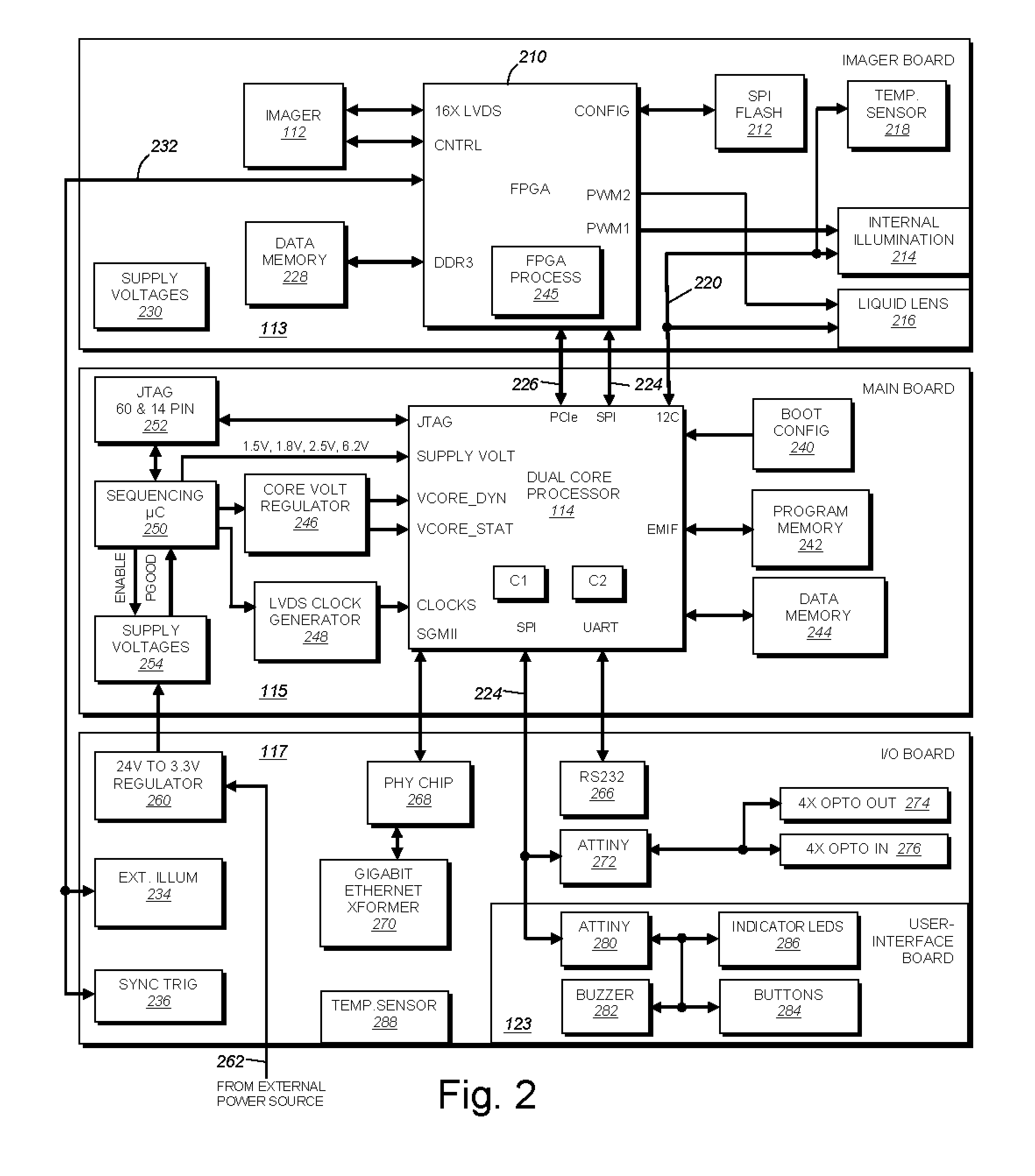Symbology reader with multi-core processor
a multi-core processor and symbol reader technology, applied in the field of machine vision systems, can solve the problems of inapplicability to inability to apply solutions for certain object geometries and line arrangements, and the cost of line scan (i.e. one-dimensional) image sensors is more expensive than conventional rectangular format sensors, so as to achieve effective dissipation of internal generated heat, high efficiency, and relatively fast movement
- Summary
- Abstract
- Description
- Claims
- Application Information
AI Technical Summary
Benefits of technology
Problems solved by technology
Method used
Image
Examples
Embodiment Construction
[0053]I. System Overview
[0054]FIG. 1 depicts a vision system 100, also commonly termed a “machine vision system” according to an illustrative embodiment. The vision system 100 includes a vision system camera 110 that illustratively includes an integral (and / or internal) processor arrangement 114. This processor arrangement 114 allows image data acquired by an imager (for example a CMOS or CCD sensor) 112 (shown in phantom) to be processed so as to analyze information within the acquired image. The imager 112 resides on an associated imager circuit board (also shown in phantom) 113, described further below The processor arrangement 114 in this embodiment includes a multi-core architecture, including at least two separate (discrete) processing cores C1 and C2 that can be provided to a single circuit die (i.e. chip) according to an embodiment. The processor 114 resides on a processor or “main” board 115, also described further below. Likewise, an interconnected input / output (I / O) board...
PUM
 Login to View More
Login to View More Abstract
Description
Claims
Application Information
 Login to View More
Login to View More - R&D
- Intellectual Property
- Life Sciences
- Materials
- Tech Scout
- Unparalleled Data Quality
- Higher Quality Content
- 60% Fewer Hallucinations
Browse by: Latest US Patents, China's latest patents, Technical Efficacy Thesaurus, Application Domain, Technology Topic, Popular Technical Reports.
© 2025 PatSnap. All rights reserved.Legal|Privacy policy|Modern Slavery Act Transparency Statement|Sitemap|About US| Contact US: help@patsnap.com



